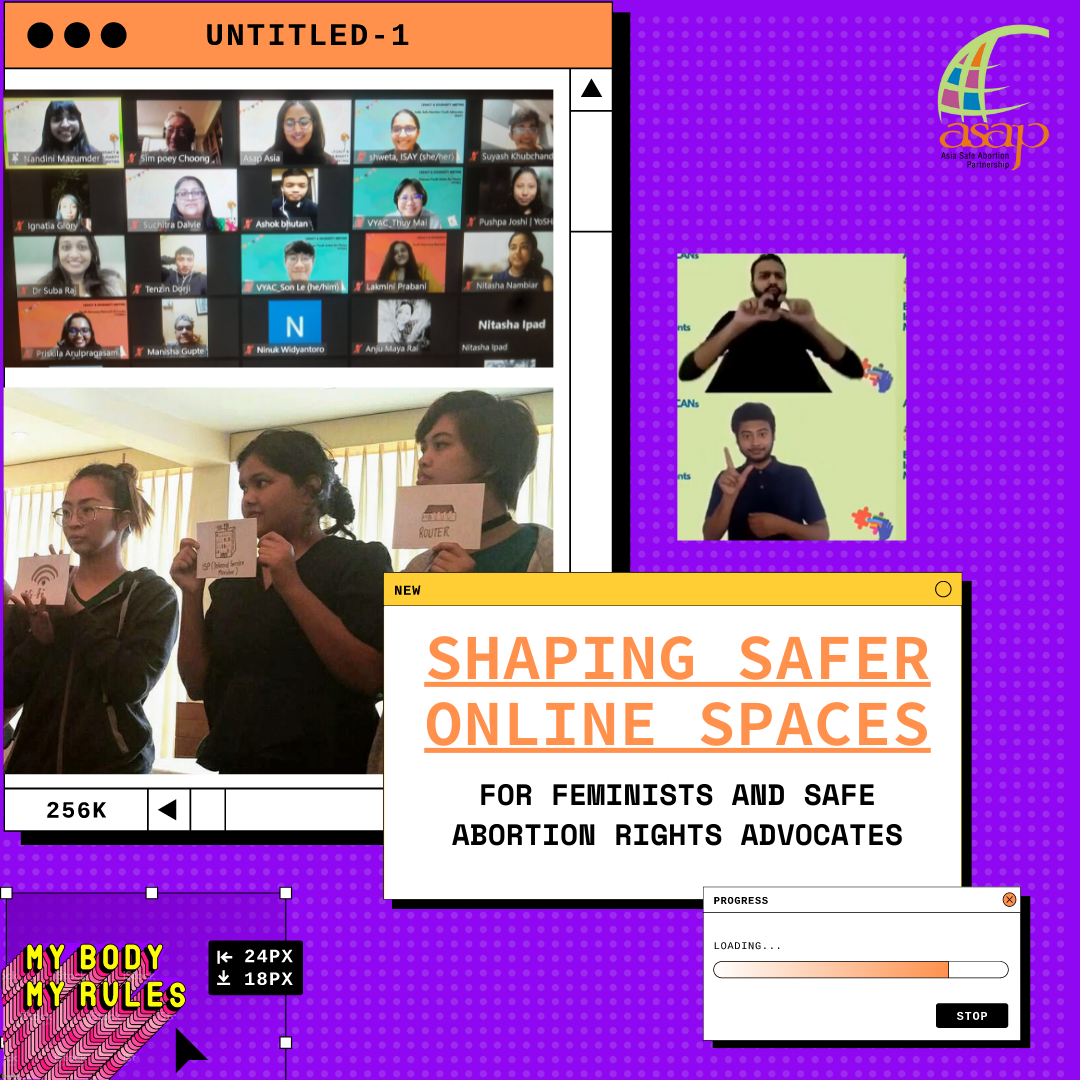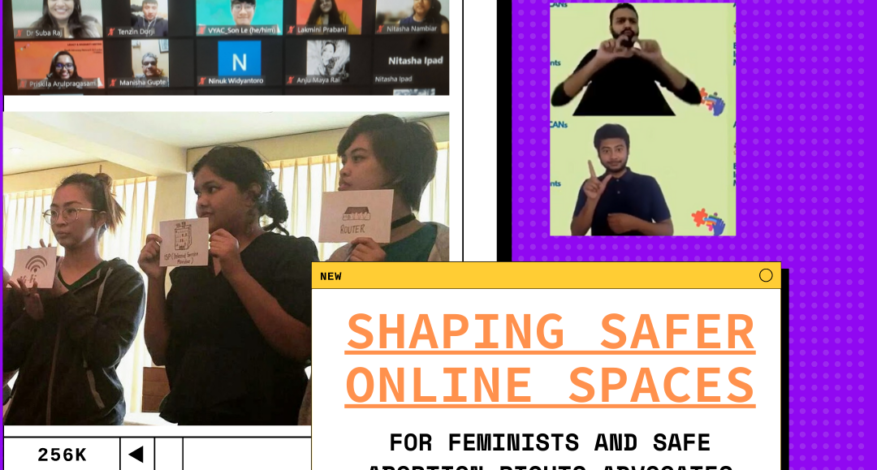Shaping Safer Online Spaces for Feminists & Abortion Rights Advocates – ASAP Theme 2021

In the past 2 years, as we all dealt with multiple lockdowns and limited mobility, ASAP has been constantly experimenting with new ways to not only stay connected with our partners, allies and friends, but also to continue to raise our voices for issues concerning our reproductive health and rights.
For those who had the privilege of being able to physically distance, while staying connected with the outside world, the online mode of communication has proved to be extremely important. Be it for employees of a company, or an individual finding solace on social media, or a civil rights activist bringing attention to issues that were forgotten amidst the COVID updates, we all have re-discovered the vast, unfiltered, powerful yet vulnerable space, which is the internet.
However, it’s important to acknowledge that while, ‘being forced to stay online’ may seem like a hindrance to us, there were many who had bigger challenges to deal with, like lack of employment, denial of non-COVID related health services, including SRHR needs of women and LGBTQIA+ members, challenges and stigma faced by the working class, by sex workers, domestic workers, migrant workers, refugees, so on and so forth. Even when it comes to online spaces, many researches show that across the world, half of the world’s population does not have access to the internet and in Asia as many of us know, having a smartphone is not a privilege accorded to many women and young people.
ASAP, along with our partners and Country Advocacy Networks, has been trying to create safe spaces to discuss all these important issues and use the ease of online connectivity to build solidarity across borders and movements.
It is not unknown that the politics and power dynamics of online spaces only reflect the inherent patriarchy existing in our offline world and it doesnt help that many tech platforms are predominantly run and controlled by cis het males who are often indifferent to the structural oppression and the resultant consequences faced by many marginalized people online.
In this context, while we can welcome the ‘re-discovering’ of our online voices, it becomes important to ensure that the oppressed, be it women, LGBTQIA members, anti race or anti-caste activists, all of us must be able to efficiently use these tools (smartphone, internet, social media etc) to shape the strategy and narrative for ourselves and our communities, because otherwise our online participation may always be susceptible to challenges like threats to privacy, harassment, online violence, trolling.
In order to unpack the complexities as well as understand ways of managing them, this year we will continue building inclusive movements, but will also be working towards ‘Shaping Safer Online Spaces’ as our overarching theme. . We believe that it is our collective responsibility as human rights and safe abortion rights defenders to claim these online spaces.
We want to encourage discourses that are effective and safe, in order to maximize the potential of these ‘online tools’ so that we are all able to bring our politics on it and not just some privileged few and we look forward to undertaking this challenging work in collaboration with all of you!






